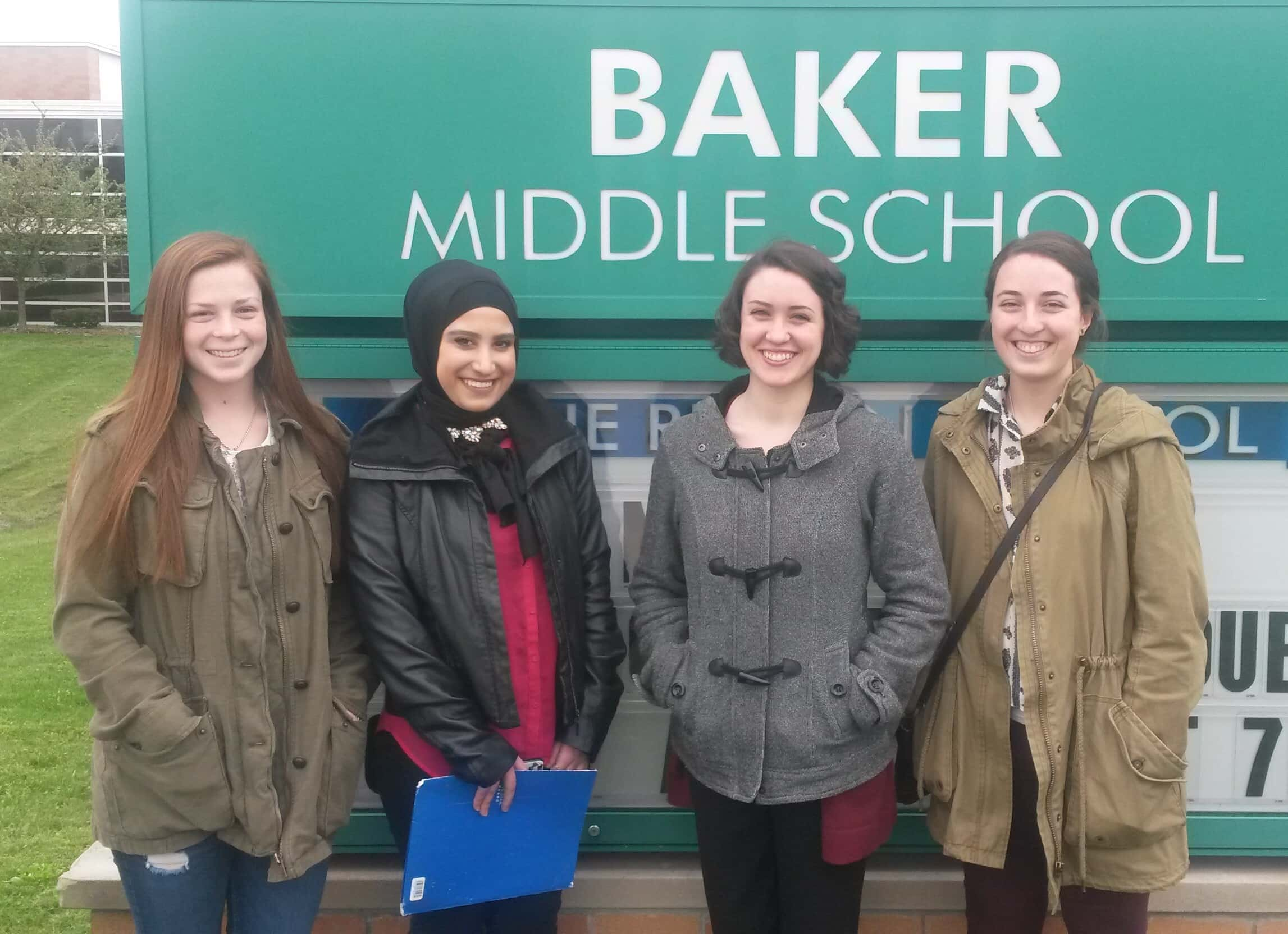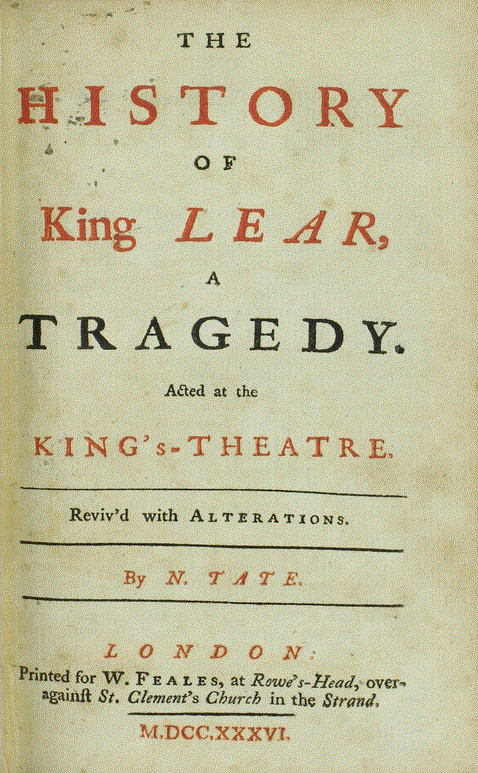English faculty awarded grant to improve Shakespeare teaching
During the academic year 2016-17, an interdisciplinary group of Wayne State faculty and staff was awarded a micro-grant from the Folger Shakespeare Library and the National Endowment for the Humanities: "Teaching Shakespeare to Undergraduates." Intended to improve college instruction of Shakespeare in the United State, this micro-grant was given to 24 of the institutions that participated in the 2015-16 traveling exhibition "First Folio! The Book that Gave Us Shakespeare." Wayne State's contribution to this micro-grant is "Dividing the Kingdoms: Interdisciplinary Methods for Teaching King Lear to Undergraduates," a digital suite of resources for college instructors nationwide.

When completed, "Dividing the Kingdoms" will consist of five modules featuring different approaches to Shakespeare: King Lear and Adaptation, led by Chera Kee (Film); King Lear and Cultural Studies, led by Simone Chess (English); King Lear and Performance, led by Tom Aulino (Theatre); King Lear and Philosophy, led by Ken Jackson (English); and King Lear and Text, led by Jaime Goodrich (English). Each module includes a short introductory video, a lesson plan for at least three in-class activities, two longer out-of-class assignments, and a service-learning activity sharing the students' work with local K-12 schools. In total, we expect that each module will take about two weeks to run.
The WSU Libraries have enhanced the modules by digitizing a suite of early modern texts: the Quarto and Fourth Folio versions of Lear, Nahum Tate's adaptation of Lear, and Raphael Holinshed's account of Lear (one of Shakespeare's sources for the play). Judith Arnold (WSU Libraries) has created an additional set of activities (King Lear and Digital Humanities) to showcase ways of using these digitized texts, including annotation and data mining. Finally, acclaimed Chicago actor Larry Yando visited Wayne State in February to film videos that will complement the modules: a 30-minute master class on performing Lear and a 45-minute Q&A about Shakespeare and acting. The project site will also feature samples of student work, including a series of short videos where Yando coaches undergraduates from Wayne State's Theatre program on how to perform specific lines from the play. The entire project has benefited from the expertise of staff members from the Office for Teaching and Learning.
The grant team devoted fall 2016 to planning and digitization. A focus group of top undergraduates from English (Paul Attard, Lujine Nasralla, Aaron Proudfoot) and Education (Sarah Noble) met weekly with doctoral student Sean Renkert and the grant team to provide feedback on the module topics and activities. The focus group also visited Wayne State's digitization lab and local Lear resources (at Wayne State's Special Collections, the Detroit Public Library, and the Detroit Institute of Arts). The students' feedback was crucial to the design of the modules, resulting in an unusual collaboration between professors and students.

In winter 2017, the grant team drafted the modules and piloted them in four classes spanning English, film, and theatre. One of the most exciting experiences was a special joint session of ENG 3110 and ENG 2200, where Professors Chess and Goodrich piloted the text module. Professor Chess's section of ENG 2200 has also been working with Judith Arnold to create a Lear bibliography that will accompany the modules.
Meanwhile, Aaron Proudfoot helped the Kino Club with an April showing of Ran, Akira Kurosawa's masterful adaptation of Lear. In April, members of the grant team and focus group (Simone Chess, Jaime Goodrich, Lujine Nasralla, Sarah Noble, Aaron Proudfoot, Sean Renkert) participated in a roundtable about the grant at the Rushton Conference. Finally, Sarah Noble developed service-learning activities for each module that are appropriate for use in middle and high schools. In late April, she and three honors students from Professor Goodrich's section of ENG 3110 (Cassidy Capoferri, Tori Knight, and Amal Shukr) piloted the text service learning activity in a sixth-grade class at Baker Middle School in Troy. Faculty members are now finalizing their modules, and we anticipate that the completed project will be online later this summer.